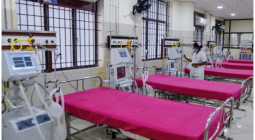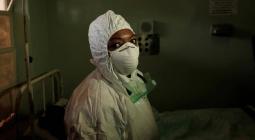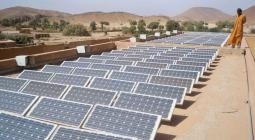First poverty, now pandemic threatens access to electricity.

BARCELONA (Thomson Reuters Foundation) - One in 10 people lack electricity and the pandemic will likely make it harder still to meet a global goal of getting power to everyone by 2030, international organisations said on Thursday.
An annual report tracking progress on sustainable energy said more than a billion people have won access to electricity since 2010, with 90% of the planet connected in 2018.
But that still left 789 million people without power.
And even before the outbreak of COVID-19 threw up new obstacles, the report estimated 620 million people would remain without electricity in 2030, 85% of them in sub-Saharan Africa.
“Even before today’s unprecedented crisis, the world was not on track to meet key sustainable energy goals. Now, they are likely to become even harder to achieve,” said Fatih Birol, executive director of the International Energy Agency (IEA).
“We must redouble our efforts to bring affordable, reliable and cleaner energy to all – especially in sub-Saharan Africa, where the need is greatest – in order to build more prosperous and resilient economies,” he added in a statement.
The report said disruptions caused by coronavirus lockdowns and their economic fallout would likely affect electrification, slowing and in some cases reversing advances.
Some utilities and off-grid providers are expected to face financial difficulties, said the report from the IEA, the International Renewable Energy Agency, the U.N. Statistics Division, the World Bank and the World Health Organization.
COVID-19 has also disrupted supply chains and limited the ability of many to pay for their services, it added.
“Governments, hand in hand with the international community, should be prepared to mitigate these adverse effects to safeguard the gains in (electricity) access,” it said.
The crisis has shown the need for reliable and clean energy at hospitals, for schools to prepare children for the digital economy, and for communities to pump clean water, it added.
“Access to reliable energy is a lifeline, especially in the context of the COVID-19 crisis,” said Riccardo Puliti, global director for energy and extractive industries at the World Bank.
“It is essential not only for preventing and addressing the pandemic but also for accelerating the recovery and building back better,” he added.
The report showed that efforts to provide poor families, especially in rural communities, with cleaner cooking methods continued to stagnate, despite gains in large parts of Asia.
In 2018, 2.8 billon people were cooking with smoky fuels like kerosene, coal and wood, compared with 3 billion in 2010.
Under current and planned policies, 2.3 billion people would still not be using clean cooking fuels and technologies in 2030, falling short of a goal for universal access by almost 30%.
The COVID-19 pandemic is likely to worsen the exposure of women and children to air pollution at home, which already causes close to 4 million deaths a year, the report warned.
International aid to developing countries in support of clean and renewable energy hit $21.4 billion in 2017, double its level in 2010, but only 12% reached the least-developed countries and small island developing states, it said.
To speed up deployment of renewable energy in those places, larger amounts of funding should be channelled to those most in need - even more so in a post-pandemic world, the agencies said.
28 May 2020
REUTERS




